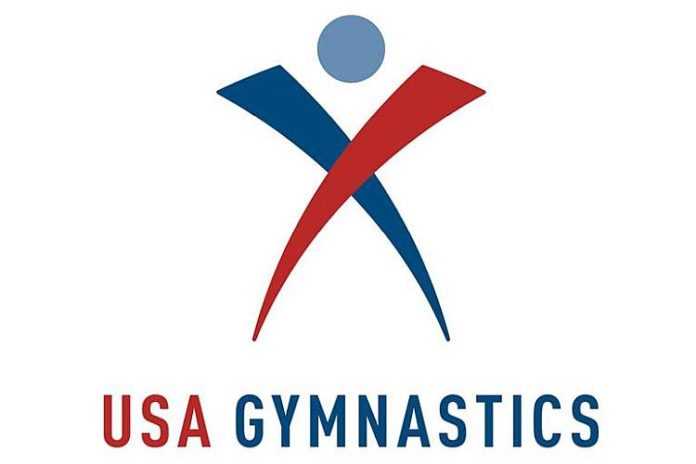“Are we really convinced that playing qualifying games in September, October, November, March, June, September, October, November, March for a competition which takes place in June the second year – whether it’s the Euro or the World Cup, or Copa America or the World Cup, it doesn’t really matter – do we really think this is the right way for football, when we are saying, ‘fans, maybe they want more meaningful games, less meaningless games.'”
That was FIFA President Gianni Infantino (SUI) during the online 71st FIFA Congress in May, opening the discussion on the question of whether the federation’s signature tournament – the FIFA World Cup – should be played every two years.
A proposal by the Saudi federation to study the feasibility of such a change was approved by 166-22, but just four months later the pushback has been epic.
Individual clubs, individual federations and confederations – notably from Europe (UEFA: 55 members) and South America (CONMEBOL: 10) – have come out against the idea. UEFA posted a long list of complaints on Wednesday, including:
“There are real dangers associated with this plan:
● “the dilution of the value of the No.1 world football event, whose quadrennial occurrence gives it a mystique that generations of fans have grown up with;
● “the erosion of sporting opportunities for the weaker national teams by replacing regular matches with final tournaments;
● “the risk to sustainability for players, forced to engage in summer high intensity competitions every year instead of longer recuperation breaks in alternate years;
● “the risk for the future of women’s tournaments, deprived of exclusive slots and overshadowed by the proximity of top men’s events.
“These are just some of the serious concerns that the FIFA proposal provokes at first glance and they cannot be dispelled simply with unsubstantiated promotional slogans on the supposed benefits of a thicker calendar for final tournaments.”
Not as much has been heard from CONCACAF (North and Central America: 41) or the confederations from Africa (CAF: 56), Asia (AFC: 47) or Oceania (OFC: 14). And there are good reasons for this:
● Both UEFA and CONMEBOL already host highly-popular, highly-profitable area tournaments: the European Championship and the Copa America, both held earlier in 2021. Why should they want their premiere regional events to be forced to change?
● Moreover, these two confederations dominate the existing World Cup and the financial return it brings. Consider that in the 21st Century, there have been five FIFA World Cups and that European and South American teams have combined for 35 of the 40 quarter-finalists? That’s 87.5%:
= 2002 quarters: 4 Europe, 1 CONCACAF, 1 S. America, 1 Africa, 1 Asia
= 2002 semis: 2 Europe, 1 S. America, 1 Asia
= 2006 quarters: 6 Europe, 2 S. America
= 2006 semis: 4 Europe
= 2010 quarters: 3 Europe, 4 S. America, 1 Africa
= 2010 semis: 3 Europe, 1 S. America
= 2014 quarters: 4 Europe, 1 CONCACAF, 3 S. America
= 2014 semis: 2 Europe, 2 S. America
= 2018 quarters: 6 Europe, 2 S. America
= 2018 semis: 4 Europe
Added up, out of 40 total quarterfinalists, 23 were from Europe, 12 from South America, two from CONCACAF and Africa and one from Asia.
In terms of semi-finalists, these results show UEFA and CONMEBOL with 19 out of 20 (95.0%)! Europe has 15, South America, 4, and there was South Korea in 2002.
● Both UEFA and CONMEBOL state their worry about sidelining women’s football development if (their) men’s championship events are moved into the same years as the Women’s World Cup.
With the women’s game growing exponentially in terms of interest and money, it’s easy to see why UEFA – especially – would object. Since the women’s tournament expanded to 24 teams in 2015, Europe produced three of the quarterfinalists and two of the semifinalists in 2015, but then seven of the eight quarterfinalists and three of the four semifinalists in 2019.
Why break up a good thing (for UEFA)?
The men’s World Cup is already expanding from 32 to 48 teams for 2026 and the women’s tournament from 24 to 32 for 2023. So more countries – that is, “weaker countries” as UEFA puts it – are going to get on the fun already.
This has a familiar ring to it, and a solution was found by the International Skating Union.
The European Championships is the oldest championship event in the sport, begun in 1891 for men and 1930 for women. It’s a big deal in the sport and pre-dated the World Championships by five years.
But it left everyone outside of Europe – if you will – “out in the cold.” With the commercial expansion of figure skating in the 1990s, some kind of complimentary event was needed to showcase the top skaters from Canada, China, Japan, the U.S. and so on. So in 1999 came the ISU Four Continents Championships, an event for everyone outside of Europe. It has been dominated by the four countries noted prior, but the “4CC” has proved to be popular and important for the Pan-Pacific powers.
With UEFA and CONMEBOL dead-set against a biennial FIFA World Cup, it will be difficult to make it happen at the present moment. But could FIFA bring the other confederations from Africa, Asia, Oceania and North and Central America together for an “InterContinental Cup” championship?
Suddenly, most of the usual suspects in the World Cup quarterfinals and semifinals are gone. This would be a championship of 158 nations, many more than the 55 in UEFA or the paltry 10 in South America. Would such a title be meaningful to current confederation champions Algeria, Qatar, New Zealand or the U.S.? Or traditional powers like Cameroon, Nigeria, Japan or Mexico? You bet it would.
And, given the success of the UEFA Euro 2020 experiment – in the middle of a pandemic – to hold matches across 11 cities, hosted by 11 different federations, an InterContinental Cup could start with matches in four different host cities, representing the four different competing confederations!
Infantino has insisted that FIFA study any possibility that brings more “meaningful games” to fans instead of friendlies with seldom-used players. That’s what fans want.
UEFA and CONMBEOL are fine with things the way they are. That creates an opportunity for the other four confederations to start their own tournament and create a new, meaningful – and potentially lucrative – tradition of their own.
Rich Perelman
Editor
You can receive our exclusive TSX Report by e-mail by clicking here. You can also refer a friend by clicking here, and can donate here to keep this site going.
For our 743-event International Sports Calendar for 2021 and beyond, by date and by sport, click here!




























